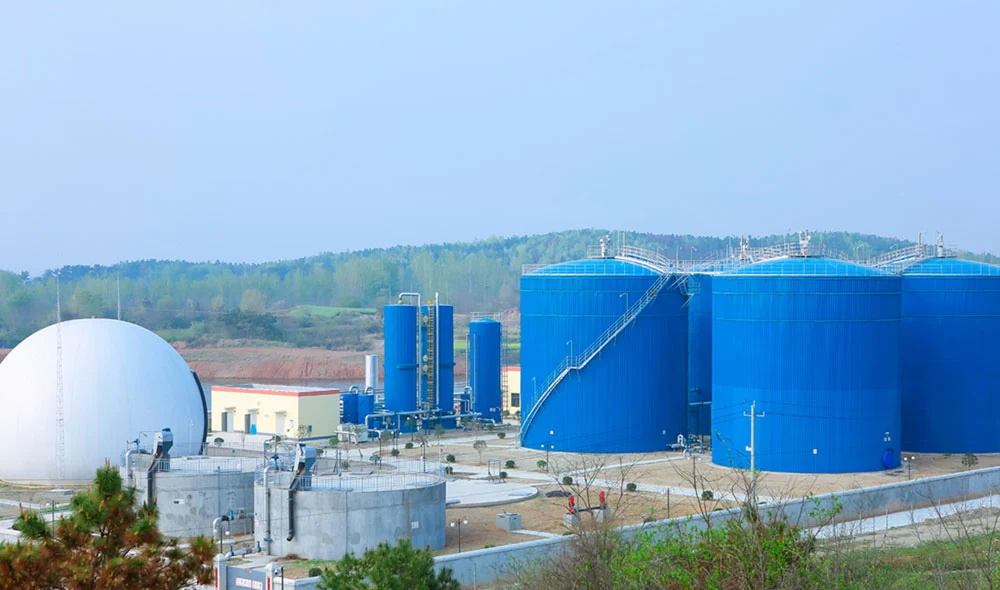Biogas Projects

Descripción del producto
Biogas Plant Projects
YHR Environment provides customers with the whole process services from consulting, design, equipment supply, construction, operation to commissioning, and provides customers with the whole solution of biogas engineering, which can treat solid organic waste, animal manure, etc. Empowering sustainability ambitions through our sustainable energy technology and services. At present, more than 60 projects larger than 1MW have been built in China.
Type of Bio Gas Plants
Agricultural Bio Gas Project Plant
The waste and wastewater generated during the processing of agricultural products can also be used as raw materials for biogas production, such as starch production and vegetable processing plants, which use waste residues to produce biogas for power generation or green gas source feedback to factories.
Manure Treatment Biogas Plant
Manure treatment in large farms is difficult, especially in cattle farms, chicken farms and pig farms. Manure treatment through anaerobic fermentation can generate biogas energy and solve the problem of environmental pollution caused by manure. The generated solid digestate can be used as organic fertilizer to return to farmland.
Poultry Waste Biogas Plant China
A small amount of biogas is produced during the treatment of farm sewage, which can be collected for electricity generation and heating.
Straw Biogas Plant
After the end of crop growth, a large number of straw as a difficult waste has become a problem around the world, but it is a good raw material for biogas projects. Corn straw, paddy straw, wheat straw and napier grass are reliable biogas raw materials, and biogas is produced by anaerobic fermentation.
Mixed Raw Materials Bio Gas Manufacturing Plant
The raw materials used in the construction of biogas projects are often complex. Biogas plants can be used as organic waste treatment centers to deal with a variety of raw materials. Mixed fermentation such as manure and straw is more conducive to the stability of the system.
What Is A Biogas Plant Used For?
Biogas is one of the most commonly used alternative energy sources in renewable energy production. Through the anaerobic digestion of organic waste (breeding manure, crop straw, napier grass, bagasse, urban waste organic part), through the control of hypoxia and temperature conditions, by a large number of bacteria fermentation of organic matter to produce biogas, biogas can be converted into electricity, heat and purified into natural gas. The rest of the solid and liquid residue can be used as organic fertilizer for crops. Biogas is made up of 50 to 60 percent methane, with the rest being carbon dioxide (other substances with lower percentages are carbon monoxide, nitrogen, hydrogen, and hydrogen sulfide).Biogas is 100% renewable and carbon-neutral, as its combustion doesn’t produce new carbon dioxide. Moreover, the production process prevents the release of methane into the atmosphere, with a positive impact on the environment.
How Does A Biogas Project Work?
Step 1 – Pre-treatment
Raw materials need to be pre-treated before anaerobic fermentation. For manure raw materials, a receiving tank needs to be set up. After removing impurities, raw materials are first stored in the receiving tank and fully mixed by stirring before being pumped to the fermenter to reduce the risk of pipeline blockage and equipment damage. After crushing, straw raw materials are sent to the fermenter through the pretreatment system and feed box. Through effective pretreatment, the residence time in the fermenter can be effectively reduced, the availability of microorganisms can be improved, and the biogas production can be increased.

